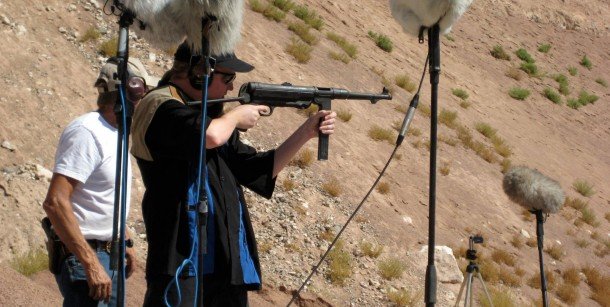Call of Duty "has almost ruined a generation of shooter players," says Tripwire Interactive

Do you think it's a matter of patience? Have these players lost their sense of patience?
Gibson: I think that's part of it. The game is kind of spoonfeeding them, and making them feel great when they're not. And like I said, that's smart business, and I don't blame Infinity Ward for wanting to do that. They're selling millions of games and they have lots of people enjoying it, but I think there's a depth of enjoyment there that a lot of these players are missing out on. And when you try to get them to branch out, their knee-jerk reaction is “The training wheels have come off, I'm gonna fall!” And I hate to see that.
It's this weird dichotomy between, you know, single-player is getting much more depth, and players are just eating it up. They're loving that. They're buying these FPS-RPG single-player games like crazy. But multiplayer, “Ooh, don't take my training wheels off.” I hate that. So we're trying... we're giving a little bit of training wheels, but we're going to take them off occasionally in the shooters that we're making, and hopefully we'll get some of those people to branch out. I think for me though, I wouldn't say I've completely given up on all of those players, but I'm not gonna try to make a game that tries to be Call of Duty at the expense of having fun gameplay that actually has depth.
Elliot Cannon, Rising Storm Lead Designer: Or creating a game that feels like you might be in a war, and you might die?
"One of the things that Call of Duty does, and it's smart business, to a degree, is they compress the skill gap."
Gibson: Yeah. That's one of the things that we do in our games, and it's fear. When you play... I know there are modes in Left 4 Dead that are more hardcore, but when you play Left 4 Dead, and I'm really friends with Valve, so I hope they don't get mad at me, but you do get spikes of adrenaline. But eventually that wears off because you figure out, well, as long as we stick together we're never gonna die. In Killing Floor, when the Fleshpound shows up, you could be screwed. Half your team is probably gonna die. Your heart rate goes up, you're freaking out, like “I can actually lose this shooter.” And if there's no fear, there's no tension, the victory is shallow. We want there to be some fear.
What do you consider your tools for expressing fear?
Gibson: Vulnerability is a big part of it, lethality. The ability to lose. There has to be... it's kind of like, you know, if you're gambling. If you go to the penny slots, you're like, “Okay, yeah, whatever, I lost a penny.” But you go to the Roulette table, you throw down a thousand bucks, and you spin the wheel—you're nervous at that point.
Keep up to date with the most important stories and the best deals, as picked by the PC Gamer team.
So, having the players have to take risks. Risk versus reward. They risk more, but the reward is greater. There's more depth, there's a bit more of a learning curve, but when you get that kill at long range with that bolt-action rifle, while the artillery's flying around your head, and mortar shells are falling and guys are Banzai-charging you in the face, and your guy's shaking, but you still kill him anyway. That's an experience. You had some risk there, but you got a bigger reward. The kill wasn't just handed to you. It wasn't like “I called in the helicopter and it flew into the level and mowed down half the enemy team while I wasn't even doing anything.”
Check back on Monday for an exclusive hands-on with Rising Storm .

Evan's a hardcore FPS enthusiast who joined PC Gamer way back in 2008. After an era spent publishing reviews, news, and cover features, he now oversees editorial operations for PC Gamer worldwide, including setting policy, training, and editing stories written by the wider team. His most-played FPSes are Hunt: Showdown, Team Fortress 2, Team Fortress Classic, Rainbow Six Siege, and Counter-Strike. His first multiplayer FPS was Quake 2, played on serial LAN in his uncle's basement, the ideal conditions for instilling a lifelong fondness for fragging.

